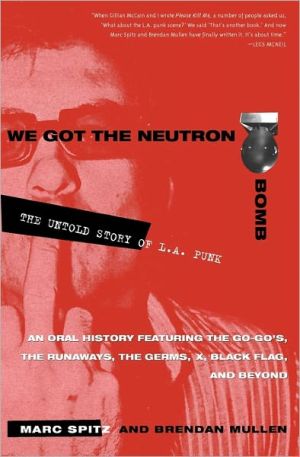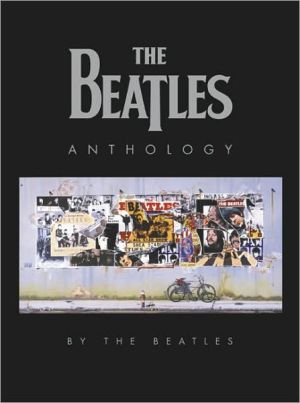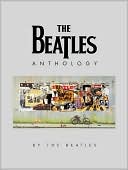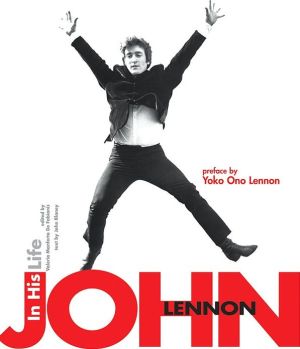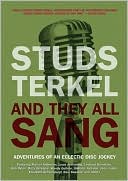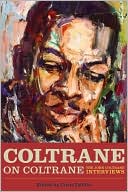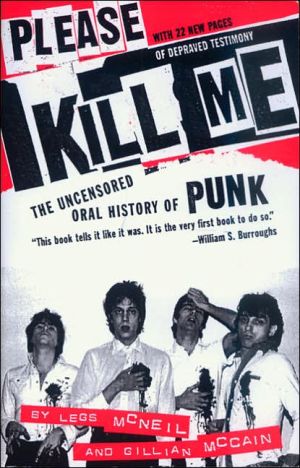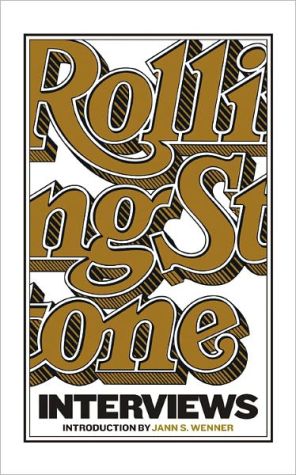We Got the Neutron Bomb: The Untold Story of L. A. Punk
Taking us back to late ’70s and early ’80s Hollywood—pre-crack, pre-AIDS, pre-Reagan—We Got the Neutron Bomb re-creates word for word the rage, intensity, and anarchic glory of the Los Angeles punk scene, straight from the mouths of the scenesters, zinesters, groupies, filmmakers, and musicians who were there.\ “California was wide-open sex—no condoms, no birth control, no morality, no guilt.” —Kim Fowley\ “The Runaways were rebels, all of us were. And a lot of people looked up to us. It...
Search in google:
Taking us back to late '70s and early '80s Hollywood -- pre-crack, pre-AIDS, pre-Reagan -- We Got the Neutron Bomb re-creates word for word the rage, intensity, and anarchic glory of the Los Angeles punk scene, straight from the mouths of the scenesters, zinesters, groupies, filmmakers, and musicians who were there. Assembled from exhaustive interviews, We Got the Neutron Bomb tells the authentically gritty stories of bands like the Runaways, the Germs, X, the Screamers, Black Flag, and the Circle Jerks -- their rise, their fall, and their undeniable influence on the rock 'n' roll of today. Library Journal For years, West Coast punks have been ardently arguing for some much-deserved respect. Though the L.A. punk scene had a late start, it has turned out more relevant bands in the last two decades than the communities in New York and London combined. There's only been one roadblock in L.A.'s way until now, there hasn't been a book. Spitz, senior contributing writer at SPIN magazine, and Mullen, founder of the seminal Masque club that fostered many of the bands covered here, have fashioned a long-overdue oral history along the lines of Legs McNeil and Gillian McCain's Please Kill Me, Gotham punk's definitive history. Starting in 1971 with Jim Morrison and the glitter rock invasion and ending in 1981 with the Go-Go's commercial success, this book presents raw quotations from vital scenesters, promoters, and musicians. Readers will get glimpses into the formation and demise of acts like the Runaways, X, and the Circle Jerks. Much more thorough than Forming: The Early Days of L.A. Punk (LJ 11/1/99), this book not only titillates with insights and anecdotes that are alternately hilarious and grisly but also fills a gap in popular music history. Highly recommended for all libraries, especially those in the Golden State. Robert Morast, "Argus Daily Leader," Sioux Falls, SD Copyright 2001 Cahners Business Information.
AcknowledgmentsIntroduction: Let's Get Rid of New YorkPrologue: The Boy Looked at JimboCh. 1"The Under Assistant West Coast Promotion Man": Rodney's English Disco and the Glitter Rock Deca-Dance (1971-75)Ch. 2Trouble at the Riot House: L. A. Glitter's Downward Spiral (1974-75)Ch. 3Back Door Man and the New Order (1974-75)Ch. 4"Young Americans" (1975-76)Ch. 5Queens of Noise: The Rise of the Runaways (1975-76)Ch. 6Radio Free Hollywood (1976-77)Ch. 7Forming: The Screameers, the Weirdos, the Zeros, and the Germs Kick-Start the Scene (1976-77)Ch. 8So This Is War, Eh? Slash Magazine, Flipside, Lobotomy, and the L.A. Punk Zines (1977)Ch. 9"Punish or Be Damned": The Rise of the Screamers (1977)Ch. 10Getting Devo-ed (1977)Ch. 11"Landlord, Landlord, Landlord, Clean Up the Mess": The Birth of X (1977)Ch. 12Pass the Dust, I Think I'm Bowie: A Few Words About Black Randy (1977-78)Ch. 13Welcome to Liverpool '77: Punksploitation, the Indie Boom and the Incredible Singing Dickies (1977)Ch. 14The Masque and the Plunger Pit (1977)Ch. 15"I'm Darby Crash": In and Out of Control (1977-78)Ch. 16Talkin' 'Bout the Hillside Strangler (1978)Ch. 17Misfits and Cheerleaders: The Go-Go's Go Punk (1978)Ch. 18"Ever Get the Feeling You've Been Cheated?": The Sex Pistols in California (1978)Ch. 19Trashin' and Bashin' (1978)Ch. 20The Canterbury Tales (1978-79)Ch. 21Mutations: Power Pop, New Wave, Art Punk, Psychobilly, and the Seeds of Hardcore Split the Scene (1979)Ch. 22Rockabilly Cats at Disgraceland (1979)Ch. 23"I Totally Hate Cops to the Max" (1979)Ch. 24This Is Hardcore (1979)Ch. 25Strung Out (1979)Ch. 26GI (Germs Incognito) (1979)Ch. 27Population One: The Fall of the Screamers (1979)Ch. 28Vicious Circles and Face Plants: Orange County Ultraviolence and the Skate Punk Boom (1979-80)Ch. 29"We Got the Beat": The Go-Go's Hit the U.K. and Return as Pop Stars (1980)Ch. 30Los Angeles (1980)Ch. 31"Preaching the Blues": The Roots Revival (1980)Ch. 32The Vex: Los Lobos and the East L. A. Scene (1980)Ch. 33Fire of Love (1980)Ch. 34"Amoeba": The Adolescents, Social Distortion, Agent Orange - Fullerton's Pop Hardcore (1980)Ch. 35The Decline of Western Civilization (1980)Ch. 36"I Want Out Now" (1980)Ch. 37"This Town Is Our Town": X Sells Out the Greek, the Go-Go's Hit Number One, and MTV (1981)Epilogue: No Apologies (1981-2001)Source NotesCast of Characters
\ Library JournalFor years, West Coast punks have been ardently arguing for some much-deserved respect. Though the L.A. punk scene had a late start, it has turned out more relevant bands in the last two decades than the communities in New York and London combined. There's only been one roadblock in L.A.'s way until now, there hasn't been a book. Spitz, senior contributing writer at SPIN magazine, and Mullen, founder of the seminal Masque club that fostered many of the bands covered here, have fashioned a long-overdue oral history along the lines of Legs McNeil and Gillian McCain's Please Kill Me, Gotham punk's definitive history. Starting in 1971 with Jim Morrison and the glitter rock invasion and ending in 1981 with the Go-Go's commercial success, this book presents raw quotations from vital scenesters, promoters, and musicians. Readers will get glimpses into the formation and demise of acts like the Runaways, X, and the Circle Jerks. Much more thorough than Forming: The Early Days of L.A. Punk (LJ 11/1/99), this book not only titillates with insights and anecdotes that are alternately hilarious and grisly but also fills a gap in popular music history. Highly recommended for all libraries, especially those in the Golden State. Robert Morast, "Argus Daily Leader," Sioux Falls, SD Copyright 2001 Cahners Business Information.\ \
